 2020 Hyundai i30 III CW (facelift 2020) Dimensions, Size & Specs
2020 Hyundai i30 III CW (facelift 2020) Dimensions, Size & Specs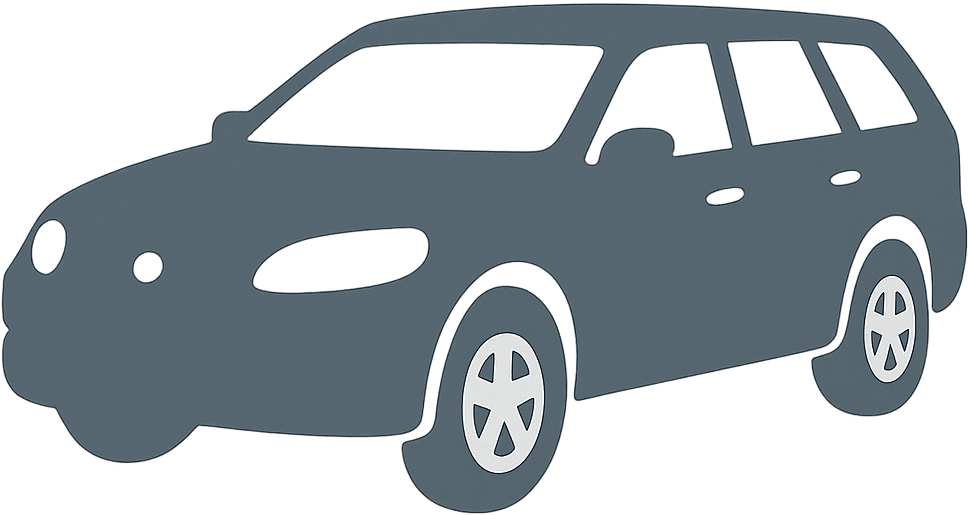
Measurements of the 2020 Hyundai i30 III CW, engineered for optimal performance and comfort
| Dimensions | |
|---|---|
| Length: | 4585 mm180.5 in15.0 ft |
| Width: | 1795 mm70.7 in5.9 ft |
| Height: | 1465 mm57.7 in4.8 ft |
| Trunk Capacity: | 602 liter21.3 cu ft |
| Trunk Capacity (Max): | 1650 liter58.3 cu ft |
| Weight Specifications | |
| Curb Weight: | 1206-1370 kg2659-3020 lbs |
| Maximal permitted Weight: | 1800-1950 kg3968-4299 lbs |
| Roof Load: | 80 kg176 lbs |
The Hyundai i30 III CW (facelift 2020) is a versatile and stylish station wagon produced from 2020 through 2024. With a length of 4585 mm (180.5 inches), a width of 1795 mm (70.7 inches), and a height of 1465 mm (57.7 inches), this model strikes a practical balance between compactness and interior space. The curb weight ranges from 1206 to 1370 kg (2659 to 3020 lbs), allowing for a stable yet efficient driving experience while the maximum weight varies between 1800 and 1950 kg (3968 to 4299 lbs), ensuring strong payload capacity and safety margins.
One of the standout features of the i30 III CW facelift 2020 is its generous luggage space, measuring 602 liters (21.2 cubic feet) with rear seats up, expanding substantially to 1650 liters (58.3 cubic feet) when the rear seats are folded down. This makes it ideal for families or drivers needing flexible cargo space for traveling, shopping, or transporting bulky items. Additionally, the station wagon supports a roof load of 80 kg (176 lbs), adding versatility for roof racks or additional storage solutions.
The facelift brought modern styling cues and improved comfort, enhancing the overall appeal of the i30 III CW. This generation continues Hyundai's reputation for combining value, reliability, and practical design in the compact station wagon segment. Whether for daily commuting or weekend adventures, the Hyundai i30 III CW facelift 2020 offers an impressive package with its well-balanced dimensions and functional capacity.
Discover the standout features that make the 2020 Hyundai i30 III CW a leader in its class
Have a question? Please check our knowledgebase first.
The Hyundai i30 III CW facelift (2020) station wagon measures 4585 mm (180.5 inches) in length, 1795 mm (70.7 inches) in width, and has a height of 1465 mm (57.7 inches). These dimensions position it as a compact and practical station wagon, suitable for everyday urban as well as longer trips with ample space.
This generation of the i30 station wagon has a curb weight ranging from 1206 kg to 1370 kg (2659 to 3020 lbs), depending on trim and options. The maximum permissible weight (gross vehicle weight) varies between 1800 kg and 1950 kg (3968 to 4299 lbs), accounting for passengers and cargo. This relatively light weight contributes to efficient fuel consumption and nimble handling.
With all rear seats upright, the Hyundai i30 III CW offers a generous luggage capacity of 602 liters (21.3 cubic feet). When the rear seats are folded down, this expands substantially to 1650 liters (58.3 cubic feet), allowing for large or bulky items, making the vehicle versatile for families or those requiring significant cargo space.
Yes, the Hyundai i30 III CW facelift (2020) station wagon's footprints of 4585 mm (180.5 inches) in length and 1795 mm (70.7 inches) in width generally allow it to fit comfortably within a standard single-car garage, which typically measures about 6 meters (20 feet) in length and 3 meters (10 feet) in width. However, garage sizes vary, so it's advisable to check your specific garage dimensions to ensure easy parking and room for door opening.
At 1465 mm (57.7 inches) tall, the Hyundai i30 III CW facelift (2020) has a relatively low profile for a station wagon, contributing to improved aerodynamics and handling. Compared to similar compact wagons, it is slightly lower than many rivals, which often range from 1470 mm to 1550 mm in height, enhancing driving dynamics while still maintaining sufficient interior headroom.
The Hyundai i30 III CW facelift (2020) station wagon features a roof load limit of 80 kg (176 lbs). This rating means you can safely carry items like roof boxes, bicycles, or sports equipment on the roof rack without compromising vehicle stability or safety. It is important not to exceed this limit to avoid impacting driving dynamics or structural integrity.
Compared to the previous generation, the i30 III CW facelift maintains a similar footprint but includes subtle design refinements to enhance interior space and aerodynamics. Typically, weight reductions and packaging improvements have been achieved without significant size increases, ensuring the vehicle remains nimble and practical. Luggage capacity may have been optimized, with the 1650 liters maximum volume being competitive.
The Hyundai i30 III CW facelift (2020) is competitive in size with other compact wagons such as the Volkswagen Golf Variant and Ford Focus Wagon. Its length of 4585 mm (180.5 inches) is slightly longer than the Golf Variant, which measures about 4567 mm (179.7 inches), giving it an edge in cargo space. Width at 1795 mm (70.7 inches) is comparable, providing similar interior comfort. Its generous 1650-liter maximum cargo capacity is on par or better than many rivals.
The Hyundai i30 III CW facelift (2020) offers spacious seating for five passengers, with ergonomically designed seats for comfort during long journeys. The rear bench can be folded down in a 60/40 split configuration to expand cargo capacity from 602 liters to 1650 liters, providing maximum flexibility for transporting larger items without sacrificing passenger space when needed.
This facelifted third-generation i30 wagon includes updates such as refreshed styling, improved infotainment systems with enhanced connectivity options, advanced driver-assistance technologies, and engine refinements aimed at better fuel efficiency and reduced emissions. These improvements contribute to a more comfortable, safer, and enjoyable driving experience compared to earlier versions.
Discover similar sized cars.
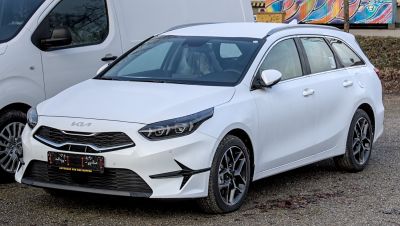
| Production: | 2021-present |
|---|---|
| Model Year: | 2022 |
| Length: | 4605 mm181.3 in |
| Width: | 2055 mm80.9 in |
| Height: | 1465 mm57.7 in |

| Production: | 2018-2021 |
|---|---|
| Model Year: | 2018 |
| Length: | 4605 mm181.3 in |
| Width: | 2055 mm80.9 in |
| Height: | 1465 mm57.7 in |
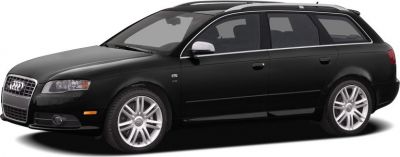
| Production: | 2004-2008 |
|---|---|
| Model Year: | 2005 |
| Length: | 4586 mm180.6 in |
| Width: | 1781 mm70.1 in |
| Height: | 1441 mm56.7 in |

| Production: | 2003-2004 |
|---|---|
| Model Year: | 2003 |
| Length: | 4575 mm180.1 in |
| Width: | 1781 mm70.1 in |
| Height: | 1440 mm56.7 in |

| Production: | 2022-present |
|---|---|
| Model Year: | 2022 |
| Length: | 4675 mm184.1 in |
| Width: | 1979 mm77.9 in |
| Height: | 1487-1497 mm58.5-58.9 in |
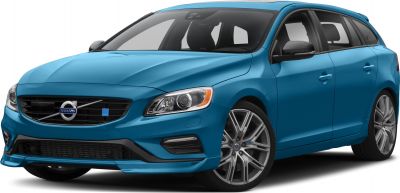
| Production: | 2013-2018 |
|---|---|
| Model Year: | 2014 |
| Length: | 4635 mm182.5 in |
| Width: | 2097 mm82.6 in |
| Height: | 1484 mm58.4 in |
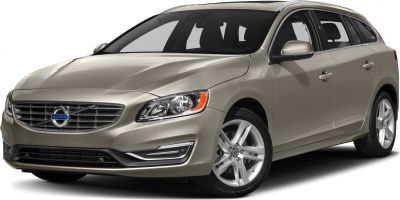
| Production: | 2010-2015 |
|---|---|
| Model Year: | 2011 |
| Length: | 4628 mm182.2 in |
| Width: | 1865 mm73.4 in |
| Height: | 1484 mm58.4 in |

| Production: | 2017-2019 |
|---|---|
| Model Year: | 2017 |
| Length: | 4585 mm180.5 in |
| Width: | 1795 mm70.7 in |
| Height: | 1465 mm57.7 in |
